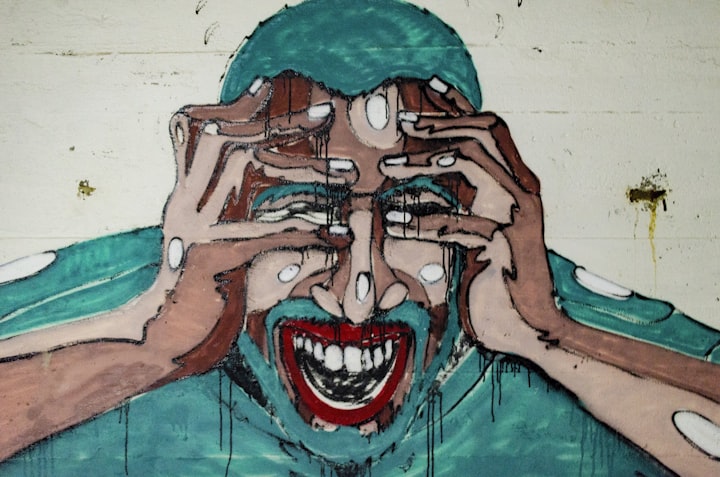Just Realize that Life on Earth Is Mostly difficult to handle
As we know that life is not a bed of roses so we can say that life is mostly suffering

When we realize that life is suffering it sometimes gives a negative vibe and it observes because a person always wants to be a positive person but accepting this hard truth about life can be the first step to a more grounded, effective brand of positivity.
It's just a matter to realize how prevalent suffering is, we also see how abundant the opportunities are to help.
We can seek to reduce suffering while still making our own lives as enjoyable as possible. We can still have a fun “personality,” or good communication skills that make us pleasant to be around.
Due to suffering in life when we take the positive vibe and keep in mind the slogan “life is better now.” This can help a person to aware of the vast violence done to nonhuman animals, and how apathetic people were. Obviously, the oppression of humans is not “all better now” either.
Many tragedies in life sometimes are enough to open a person's eyes and instead of making fun, he or she automatically take the right way to think. When we take a look at the lower Level region it's is observed from their lives that “Life is filled with suffering,”
Of course, when depressed feelings occur sometimes, then suffering occurs on a personality but it could be easily be concluded that the situations are worst at that time. But having faith that it will be over is very important to get happier.
And despite how disturbed I have been about the extent to which others suffer, in my own life of relative comfort it’s been easy to imagine that maybe life was all just happening inside my head, or that it somehow wasn’t as bad as it all seemed…
I have managed to cling to the fantasy of life being sunshine—despite a lot of evidence to the contrary.
Life is mostly suffering because of some reasons like:
Even for the well-off, life is largely unpleasant
To be well off and settled in life is not necessary to live without suffering, sometimes to make yourself well-off and settle in a luxury life also contain many difficulties in life and make a person suffer.
My mind is prone to a buildup of anxieties, which get cleared temporarily when something sweet happens, but its default state seems to be one of mild, incessant worry.
The United States is a rich country, yet mental health struggles are rampant here. To show you what I mean by “life is largely unpleasant,” here is an example of a stereotypical American day:
Ugh, alarm. Have to go to work. As I start getting ready, in the back of my mind I am dreading a deadline. Yay, coffee! I feel better. But now I am dissatisfied again because I am thinking of an estranged relative. Plus, there’s traffic.
Our lives have plenty of joyful moments, and the joy has identifiable sources, which give us meaning and motivation. Still, if we were to examine how we feel over a day/week/year, we might find that our lives are, overall, mildly unpleasant and unsatisfying.
And while tragedies can stay with us as chronic pain, it is a sad truth that our happy moments do not become “chronic pleasure” in the same way.
It’s not that life can’t be super happy—it surely is for a minority—but even at the upper levels of privilege, I would hypothesize that life is mostly unhappy for most people’s brains.
Extreme suffering has always been common
“Is the world getting better or worse?
There could be many reasons like if we live in extreme poverty then automatically we consider it worse. A human today is far less likely to be illiterate, die young, starve, be murdered or killed in battle, or perish from a crash or natural disaster.
And this does reflect in our happiness, he says. Happiness has gone up in recent decades in 86% of countries.
However, it also points to one of the negative points that intense suffering has always been common.
Nonhuman beings likely suffer even more
Poverty sucks. Lamentably, it is life. Animals in nature are at risk of not finding dinner, contracting a disease or getting injured—for which there will be no medical care—or otherwise dying a slow, painful death.
Being eaten is among the most common ways to go out. Can you imagine? And many species reproduce in large numbers… meaning few can survive.
It is doubtful that self-awareness is a prerequisite for suffering. After all, we accept that human babies suffer. Having an adult human intellect can create an added layer of existential anguish. Yet, it also provides coping mechanisms (this, too, shall pass) that a rabbit or fish surely lacks.
So despite our favoritism towards members of our species, it is unclear that nonhuman pain is necessary “less bad” or less intense than our own.
Nonhuman animals are either at the mercy of nature (no advanced technology) or at the mercy of us humans (who use advanced technology to exploit them for our ends).
I wake up every day and I feel lucky to be human. I hope I can be humble about that and my other privileges, and work to make a difference.
Our brains are biased against grasping the reality of suffering
There’s got to be more to the story. Maybe the good outweighs the bad. Most of the people I know are doing okay. No way could life be that tragic.
What helped clear away some of my objections was reading about biases. Specifically, the biases that stop us from grasping the reality of suffering.
If you think about it, it makes sense to be biased against realizing how bad suffering is. If we are beaten 3 times by a stick, but all we can think about is reaching the 1 carrot at the end of the rainbow, that selective focus might motivate us to survive, have sex, and pass along our genes.
I think what I’m referring to is the pleasure-desires bias cited in Suffering-Focused Ethics. Essentially, we are programmed to crave food, sex, and love. Strong desires make it seem as if pleasure is what life is about, even though we spend so much of our time dealing with the pain of unfulfilled desires.
Here are some other relevant biases
Empathy gap: “It can’t be that bad… until it happens to me.”
Scope neglect: “If one person dies of hunger, it is a tragedy. If millions die, it’s a statistic.”
Novelty bias: If suffering is already happening all the time, it’s easier to ignore than the latest hurricane.
Rosy retrospection: We often remember the past more fondly than how it felt back then. This is also called positivity bias.
Optimism bias: We underestimate how much we will suffer in the future.
Existence bias: Our genes want to pass on. We seem to be biased to assume that merely being alive must be inherently a good experience.
Social signaling: Exaggerate your happiness. Hide your suffering. We try to make our lives seem attractive and desirable, so we can be.
Counterarguments?
Above I have listed some biases against recognizing the extent of suffering. There could, of course, be counter biases.
We could exaggerate our pain to get sympathy. Or exaggerate others’ pain to feel righteous. We can get attached to believing the world is a suffering-filled place, once we have formed that conclusion. There is also pessimism bias, which mostly affects individuals with depression.
Most of society, though, does not seem to approach life from a suffering-focused lens. Overall, I would expect we are more prone to downplay suffering. Case in point: I don’t want to think too hard about the footprint of everything I buy. Nor am I keen to imagine what chronic disease I might battle for years and then die from…
Perhaps if we adopt a more… tough, or grateful definition of the word—we can interpret our easy life “suffering” as if it were less.
Other objections to “Life is mostly suffering?” Let me know!
Knowing Life Is Mostly Suffering, What Can I Do?
World religions have believed in things like a Heaven, where all pain is washed away in the end. This could be seen as evidence of how hard it is to accept that a suffering-filled life might be all there is—or at least, all we know for sure.
It’s a lot to process.





Comments
There are no comments for this story
Be the first to respond and start the conversation.